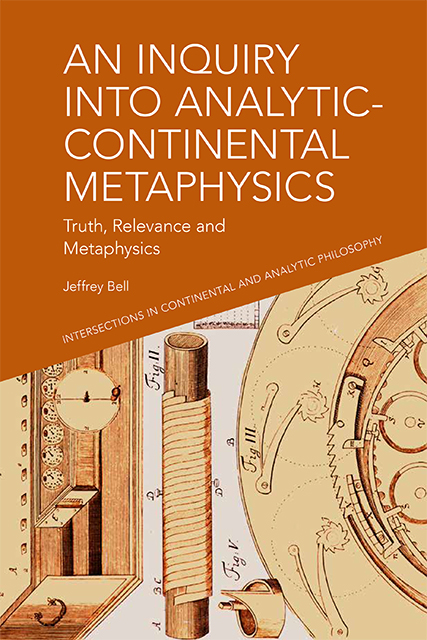Book contents
- Frontmatter
- List of Contents
- Acknowledgements
- Introduction
- §1 Problem of the New
- §2 Problem of Relations
- §3 Problem of Emergence
- §4 Problem of One and Many
- §5 Plato and the Third Man Argument
- §6 Bradley and the Problem of Relations
- §7 Moore, Russell and the Birth of Analytic Philosophy
- §8 Russell and Deleuze on Leibniz
- §9 On Problematic Fields
- §10 Kant and Problematic Ideas
- §11 Armstrong and Lewis on the Problem of One and Many
- 12 Determinables and Determinates
- 13 The Limits of Representational Thought
- 14 Learning from a Cup of Coffee
- 15 Carnap and the Fate of Metaphysics
- 16 Truth and Relevance
- Conclusion
- Bibliography
- Index
§7 - Moore, Russell and the Birth of Analytic Philosophy
Published online by Cambridge University Press: 25 October 2023
- Frontmatter
- List of Contents
- Acknowledgements
- Introduction
- §1 Problem of the New
- §2 Problem of Relations
- §3 Problem of Emergence
- §4 Problem of One and Many
- §5 Plato and the Third Man Argument
- §6 Bradley and the Problem of Relations
- §7 Moore, Russell and the Birth of Analytic Philosophy
- §8 Russell and Deleuze on Leibniz
- §9 On Problematic Fields
- §10 Kant and Problematic Ideas
- §11 Armstrong and Lewis on the Problem of One and Many
- 12 Determinables and Determinates
- 13 The Limits of Representational Thought
- 14 Learning from a Cup of Coffee
- 15 Carnap and the Fate of Metaphysics
- 16 Truth and Relevance
- Conclusion
- Bibliography
- Index
Summary
1. Birth of Analytic Philosophy
The most notable and influential criticisms of Bradley were those of Bertrand Russell and G.E. Moore, criticisms that are often seen as critical to the advent of analytic philosophy (see Candlish 2007 and Della Rocca 2013 [discussed below]). As a sociological and descriptive fact, the history of twentiethcentury philosophy in the English-speaking world is marked by a shift away from Idealism and Pragmatism towards an approach that models itself on the use of scientific methods, which in philosophy is best seen in the application of the formal analytic tools of logic and set theory. Although the task of identifying the precise point that marks the beginning of this shift is fraught with difficulties, turning to Moore and Russell is far from an arbitrary choice. The primary reason for this is that this is the narrative Russell himself tells. As Russell recalls, ‘It was towards the end of 1898 that Moore and I rebelled against both Kant and Hegel. Moore led the way, but I followed closely in his footsteps’ (Russell 1959, 54). Bradley was grouped in the Idealist crowd with Hegel, and thus their rebellion against Hegel is exemplified in their critique of Bradley (on the errors of Russell grouping Bradley with Hegel, see Candlish 2007, 29–30). Whether the break with Idealism (and by extension the break with Pragmatism and continental philosophy) is truly a clean and definitive break has been hotly contested of late (see Bell et. al. 2015, Gordon 2012). For our purposes, we will think through the details of this ‘break’ by looking at the role the Third Man Argument plays in both Moore's and Russell’s arguments. By looking at both Bradley's and Moore’s/Russell's arguments as arguments that develop in an effort to respond to the TMA, the implications and consequences of their debate for twentieth-century philosophy will become much clearer, and along the way we will further motivate my argument supporting problematic Ideas.
2. Moore on Bradley
When Russell looks to the ‘end of 1898’ as the beginning of the rebellion against Kant and Hegel, he is referring to Moore's now famous essay ‘The Nature of Judgment’ (Moore 1899).
- Type
- Chapter
- Information
- An Inquiry into Analytic-Continental MetaphysicsTruth, Relevance and Metaphysics, pp. 34 - 49Publisher: Edinburgh University PressPrint publication year: 2022

